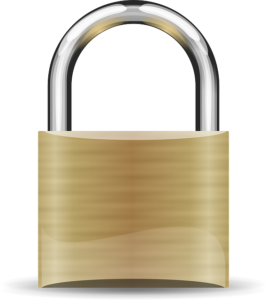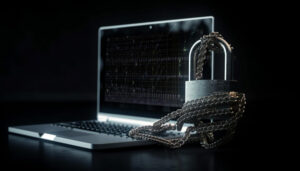In an era where information is a valuable commodity, protecting personal and sensitive data from unauthorized access is paramount. Individuals and organizations are constantly in a battle to secure their information from hackers who seek to exploit it for malicious purposes. This article explores how to delist your information from the hackers and regain control over your digital footprint.

Key Takeaways
- Proactive Approach: Taking proactive measures to secure personal information is crucial in preventing unauthorized access and potential misuse by hackers.
- Knowledge is Power: Being informed about the various methods hackers use to access information enables individuals to implement effective countermeasures.
- Regular Monitoring: Regularly monitoring online presence and keeping an eye on the digital footprint can help in early detection of any unauthorized access or misuse of information.
Understanding the Risks
The Value of Information in the Digital Age
In the digital age, information is as valuable as gold. It is traded, sold, and exploited in the vast and intricate world of the internet. Hackers are constantly on the prowl, seeking to access and exploit personal and sensitive information for various purposes, including identity theft, financial fraud, and even espionage.
How Hackers Access Information
Hackers employ a myriad of techniques to access information. From sophisticated phishing attacks to exploiting vulnerabilities in software and hardware, hackers are becoming increasingly adept at bypassing security measures. Understanding these methods is the first step in implementing effective countermeasures to protect information.
Proactive Measures to Secure Information
Regularly Update Software and Hardware
Keeping software and hardware updated is crucial in protecting information. Regular updates often include security patches that fix vulnerabilities, making it harder for hackers to exploit them.
Use Strong and Unique Passwords
Using strong and unique passwords for different accounts and services is essential. It reduces the risk of unauthorized access even if one of the passwords is compromised.

Enable Two-Factor Authentication
Two-factor authentication adds an extra layer of security by requiring a second form of verification in addition to the password. It significantly reduces the risk of unauthorized access even if the password is compromised.
Delisting Information from Hackers
Contacting the Concerned Authorities
If personal information has been accessed or misused by hackers, it is crucial to contact the concerned authorities immediately. Reporting the incident promptly can help in taking swift action to delist the information and prevent further damage.
Monitoring and Cleaning Digital Footprint
Regularly monitoring the digital footprint and cleaning up any unnecessary or outdated information can help in reducing the risk of unauthorized access and misuse of information. It also aids in early detection of any suspicious activities related to personal information.
In-Depth: Methods Employed by Hackers
Phishing Attacks
Phishing remains one of the most prevalent methods used by hackers to access personal information. By masquerading as trustworthy entities, hackers trick individuals into revealing sensitive information such as passwords, credit card numbers, and social security numbers. Being vigilant and verifying the authenticity of requests for personal information can help in avoiding falling victim to phishing attacks.
Exploiting Software Vulnerabilities
Hackers are always on the lookout for vulnerabilities in software that they can exploit to gain unauthorized access to information. Regularly updating software to patch known vulnerabilities and using security software can help in mitigating the risk of exploitation.
Social Engineering
Social engineering involves manipulating individuals into divulging confidential information. Hackers use various tactics, such as pretexting and baiting, to deceive individuals and gain access to sensitive information. Awareness and skepticism can be powerful tools in recognizing and thwarting social engineering attempts.
Legal Avenues and Remedies
Reporting to Law Enforcement Agencies
If you find that your information has been accessed or misused by hackers, reporting the incident to law enforcement agencies is crucial. They can take appropriate legal action against the perpetrators and assist in the recovery of stolen information.
Seeking Legal Counsel
Consulting with a legal counsel can provide insights into the legal remedies available for victims of information theft. Legal counsel can guide on the appropriate legal course of action to take, such as filing a lawsuit against the perpetrators, to seek redress and compensation.
https://www.getastra.com/blog/911/google-blacklist/
Maintaining a Secure Digital Presence
Regular Monitoring of Online Presence
Regularly monitoring your online presence can help in the early detection of any unauthorized access or misuse of your information. It allows you to take swift action to secure your information and delist it from hackers.
Cleaning Up Digital Footprint
Cleaning up your digital footprint involves removing unnecessary and outdated information available online about you. It reduces the amount of information that hackers can access and misuse. Regularly reviewing and cleaning up your digital footprint can help in maintaining a secure and controlled online presence.
https://www.securitytips.info/
Advanced Protective Measures
Employing Advanced Security Software
Utilizing advanced security software that offers real-time protection against threats can significantly enhance the security of your information. These tools can detect and neutralize threats before they can inflict damage, providing an added layer of defense against hackers.
Regular Security Audits
Conducting regular security audits can help in identifying vulnerabilities and security gaps in your digital environment. Addressing these vulnerabilities promptly can prevent hackers from exploiting them to access your information.
Encrypting Sensitive Information
Encrypting sensitive information can protect it from unauthorized access and misuse by hackers. Even if hackers manage to access encrypted information, decrypting it without the proper keys is extremely challenging, ensuring the safety of your information.
The Role of Cybersecurity Awareness
Staying Informed About Latest Threats
Staying informed about the latest threats and vulnerabilities can help in taking proactive measures to secure your information. Knowledge is power, and being aware of the risks can enable you to implement effective security measures and avoid falling victim to hackers.
Participating in Cybersecurity Training and Workshops
Participating in cybersecurity training and workshops can enhance your knowledge and skills in protecting your information. These training programs provide insights into the best practices and advanced techniques for securing information and thwarting hacking attempts.
https://support.opensea.io/hc/en-us/articles/4408474998419-How-can-I-stay-safe-and-protect-my-NFTs-
Additional Resources and Tips
Leveraging Online Resources
Numerous online resources provide valuable information and tips on securing personal information. Leveraging these resources can enhance your knowledge and empower you to protect your information effectively.
Implementing Best Practices
Implementing best practices such as using strong passwords, enabling two-factor authentication, and being wary of phishing attempts can significantly reduce the risk of unauthorized access to your information.
